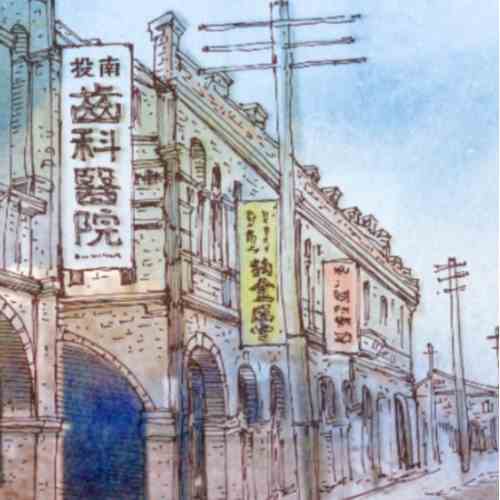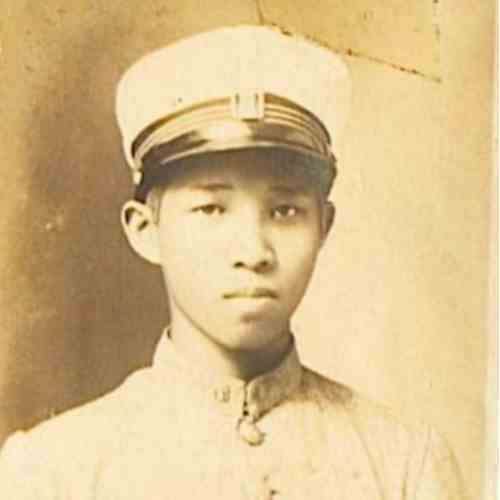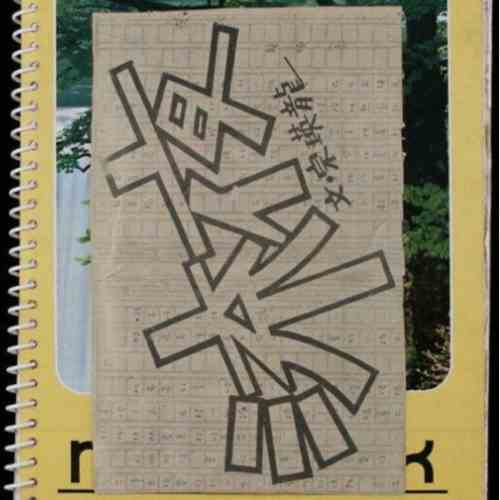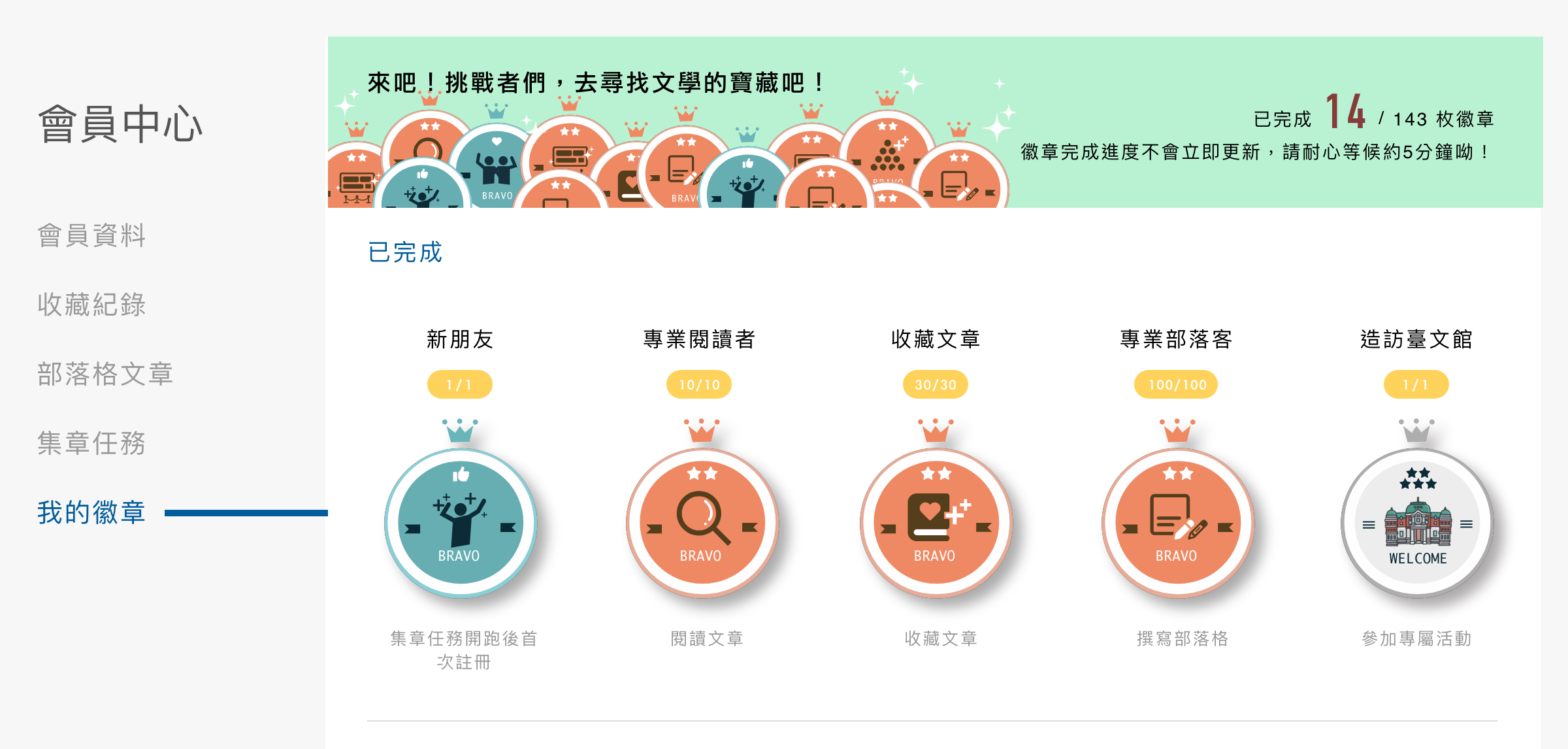History
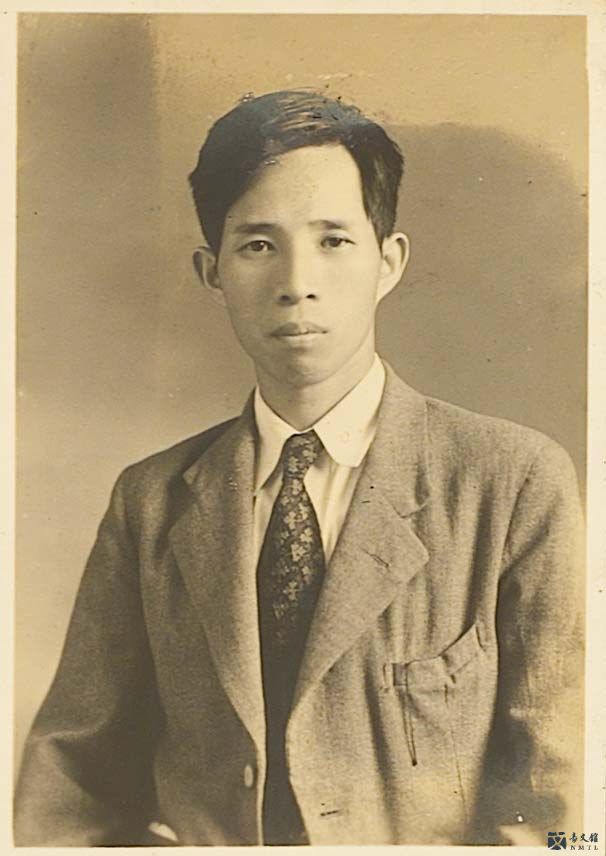
⚈ Photo of Lung Ying-tsung. January 1940, Taiwan Artists’ Association was founded and Arts and Cultural Taiwan was issued for the first time. Lung Ying-tsung was an editorial member. March 4, Taiwanese Art was founded and Lung was a reviewer for the “Readers’ Community” section. He published “Eyes of a Writer” and “Some Memory – Literary Movements on the Rise Again,” among others. (Provided by Liu Shu-yuan)
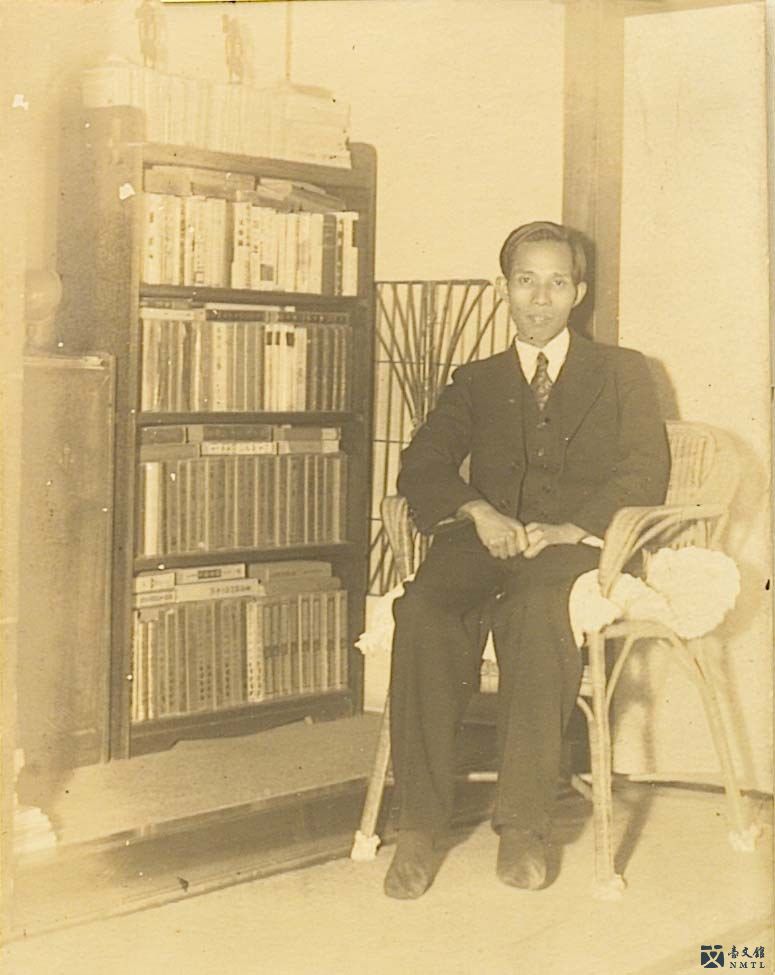
⚈ Photo of Lung Ying-tsung with his award. April 1937, Lung Ying-tsung was 27 years old. He was selected for the 9th Reformation Novel Awards and won the Excellence Prize for “A Small Town Planted with Papaya Trees.” (In that year, only two winners were selected, without specifying who the champion was.) After receiving the award, Lung took this photo at his home library in Jiancheng District, Taipei. (Provided by Liu Shu-yuan)
August 15, 1945, Japan surrendered, and Taiwan was taken over by the nationalist government. From one era to the next, writers who were born during the colonial times such as Lung Ying-tsung felt severely challenged. Lung knew little Chinese. Early on after the war, he tried to do creative writing in Chinese, although he still mostly did so in Japanese. From 1945 to 1947 when the Japanese language was not yet banned, Lung published plenty of essays, reviews, poems and novels in Japanese in the arts and culture section of China Daily News and the Japanese columns of China Magazine for which he served as editor, where he introduced the world’s literary works to readers.
October 1946, Lung’s editing job ended as Japanese newspaper and magazines were banned. Then, due to the 228 Incident, Lung produced much fewer writings. In fact, it could be said that his creative outlet was closed. Lung ceased to release new works for nearly 30 years. After retiring from Taiwan Cooperative Bank, Lung completed his first full-length novel in Japanese, Vicissitudes. Published as a series in the literary supplement of The Commons Daily in Chinese as translated by Chung Chao-cheng, the novel was however faced with lukewarm reactions from readers. In 1980, he completed “Tu Fu in Chang’an,” which was formally his first creative piece in Chinese. Then, he wrote autobiographical novels “Night Flow” and “Broken Clouds.” Afterwards, he continued to write more novels, reviews and essays in Chinese.
Lung Ying-tsung joined Taiwan Cooperative Bank as a junior clerk in 1949. It was only until 1952 that he wrote “Hometown in Autumn” in Japanese. By 1977 he completed a few more novels in Japanese. After half a century, "Hometown in Autumn" was translated into Chinese by Yeh Ti. In 2006, it was included into Complete Works of Lung Ying-tsung (in Chinese): Novels (2) published by National Museum of Taiwan Literature. Through the challenging publication process of Hometown in Autumn, one can learn about the difficulties that are often encountered by cross-language writers. From learning a new language to writing in that language and finally publishing works, the path is long until the works finally reach readers.
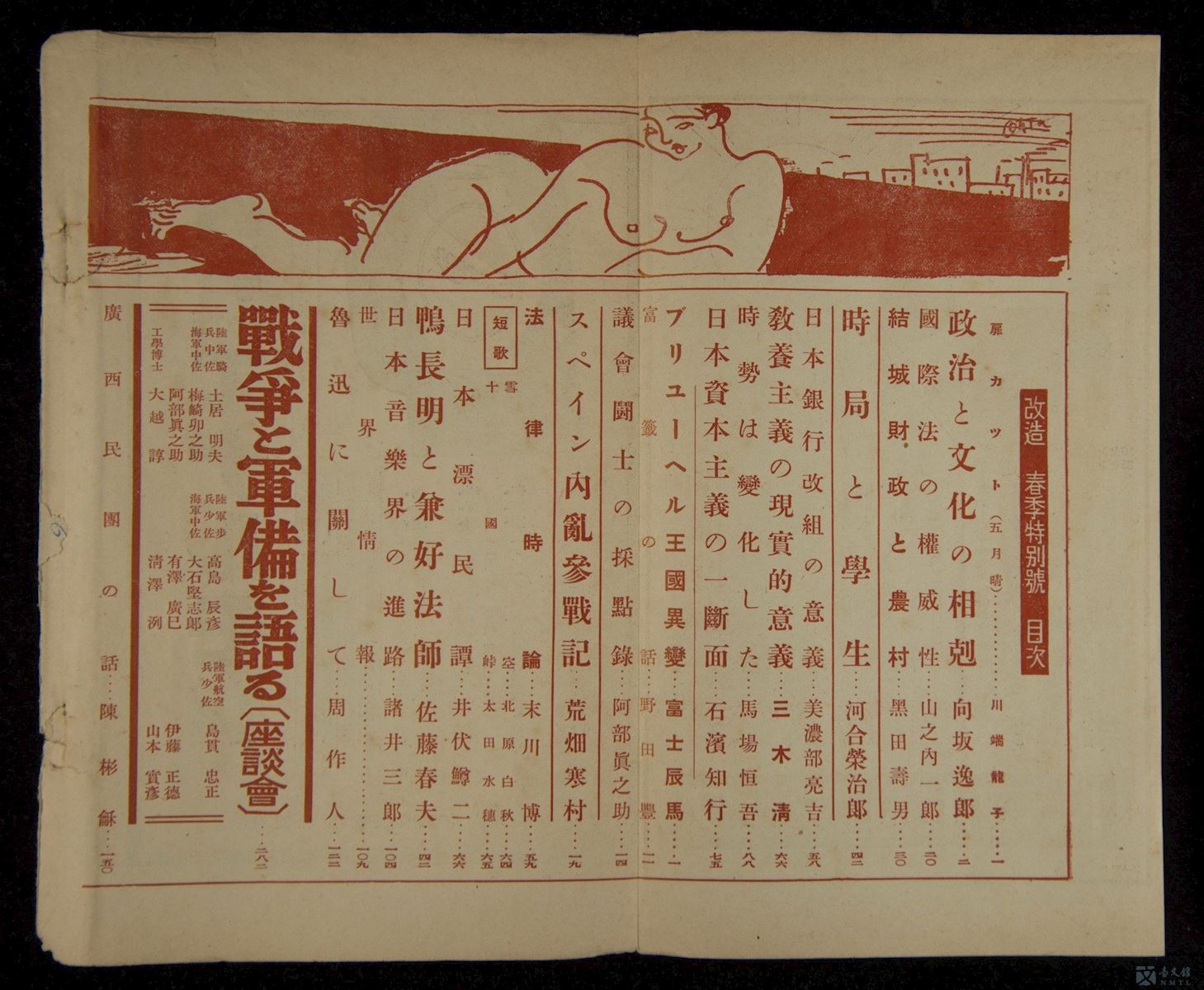
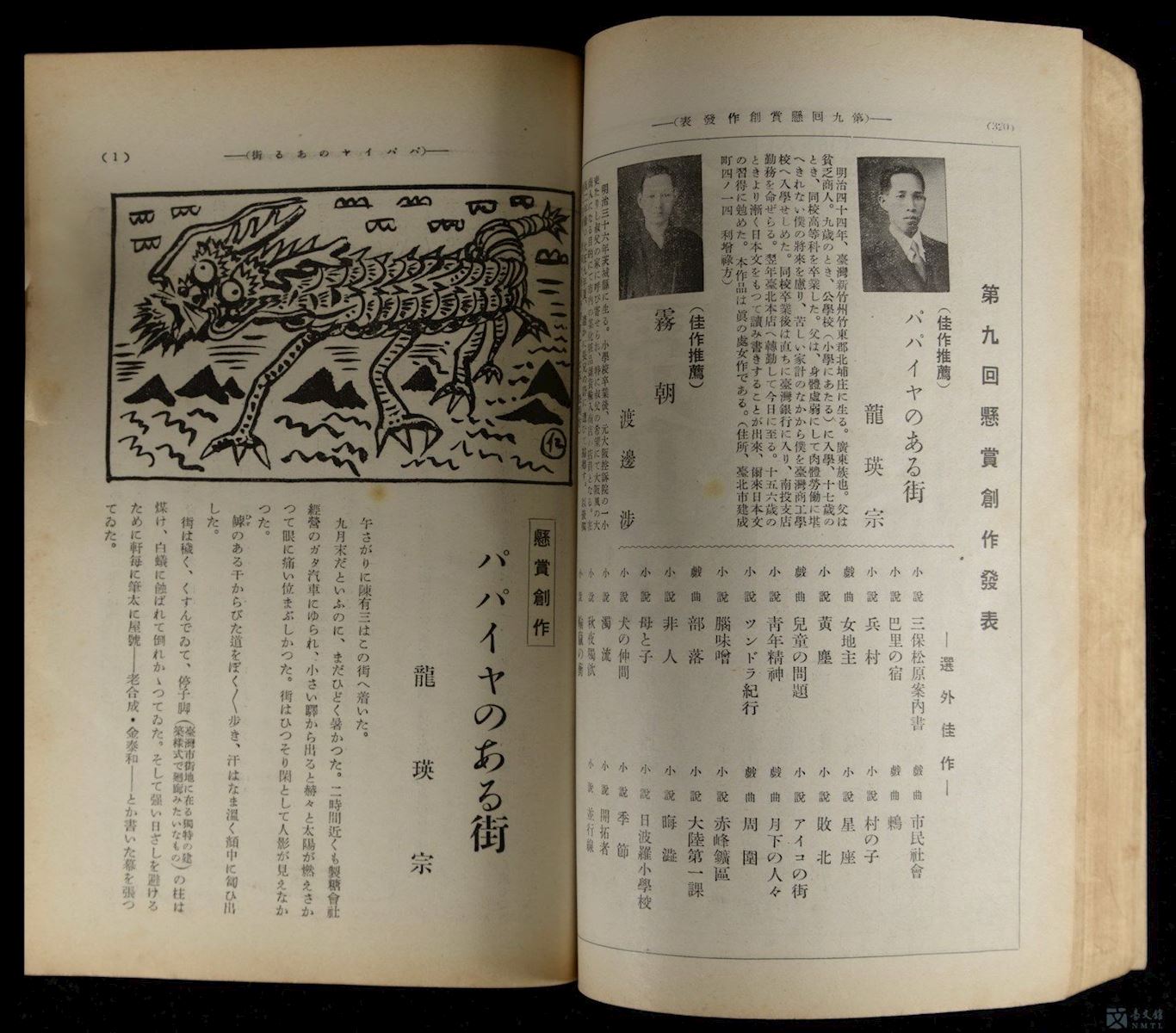
⚈ No.4, Issue 19, Reformation. (spring special, large edition) April 1937, Reformation, a magazine in Japan, published the writer’s “A Small Town Planted with Papaya Trees” in its spring special (large edition). This was Lung Ying-tsung’s first attempt at Japan’s literary circle. Lung soon won the Excellence Prize of the 9th Reformation Novel Awards and made it to Japan’s literary central stage. (Provided by Lung Ying-tsung)
